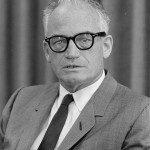
Some notes on Joseph Smith’s honesty and sincerity, based on the impressions of those who knew him well:
“We found him a boy of truth,” remembered Joseph Knight, Jr., of the twenty-one-year-old farmer’s son.[1] “So honest and plain were all his statements that there was no room,” said Newell Knight, “for any misgivings with me on the subject.”[2] Knight recalls the testimony of Josiah Stoal during a hearing against Joseph Smith in South Bainbridge, New York, in 1826, when the question of Joseph’s honesty arose in connection with the purchase of a horse:
Q.—“Have you had your pay?”
A.—“That is not your business.”
The question being repeated, the witness replied, “I hold his note for the price of the horse, which I consider as good as the money; for I am well acquainted with Joseph Smith, Jun., and know him to be honest, and, if he wishes, I am ready to let him have another horse on the same terms.” [3]
The intelligent, college-educated Lorenzo Snow recalled seeing Joseph Smith for the first time. “I made a critical examination as to his appearance, his dress, and his manner as I heard him speak,” Snow said.
He was only twenty-five years of age and was not, at that time, what would be called a fluent speaker. His remarks were confined principally to his own experiences, especially the visitation of the angel, giving a strong and powerful testimony in regard to these marvelous manifestations. He simply bore his testimony to what the Lord had manifested to him, to the dispensation of the gospel which had been committed to him, and to the authority that he possessed. At first he seemed a little diffident and spoke in rather a low voice. But as he proceeded, he became very strong and powerful, and seemed to affect the whole audience with the feeling that he was honest and sincere. It certainly influenced me in this way, and made impressions upon me that remain until the present day.
As I looked upon him and listened, I thought to myself that a man bearing such a wonderful testimony as he did, and having such a countenance as he possessed, could hardly be a false prophet. He certainly could not have been deceived, it seemed to me, and if he was a deceiver, he was deceiving the people knowingly; for when he testified that he had had a conversation with Jesus, the Son of God, and had talked with Him personally, as Moses talked with God upon Mount Sinai, and that he had also heard the voice of the Father, he was telling something that he either knew to be false or to be positively true.[4]
Lorenzo Snow went on to become the fifth president of the Church of Jesus Christ of Latter-day Saints.
[1] $Andrus and Andrus, They Knew the Prophet, 5.
[2] $Andrus and Andrus, They Knew the Prophet, 7.
[3] ??????? LeRoi C. Snow, “How Lorenzo Snow Found God,” Improvement Era 40/2 (February 1937): 82-84, 105. It should be kept in mind that this transaction and examination took place in an era when, in the United States, horse theft was a capital offense.
[4] $Andrus and Andrus, They Knew the Prophet, 36-37.
***
Would you be interested in some quantifiable data and analysis regarding the question of who wrote the Book of Mormon? If so, here’s a good place to start:
“What Can Stylometry Tell Us about Book of Mormon Authorship?”











